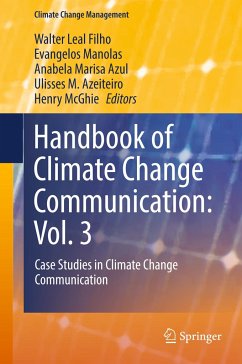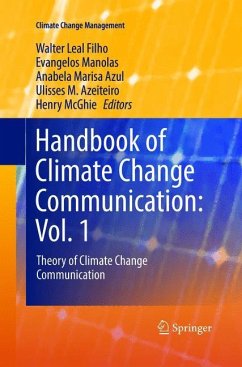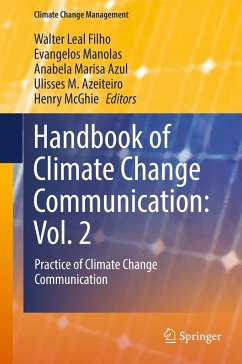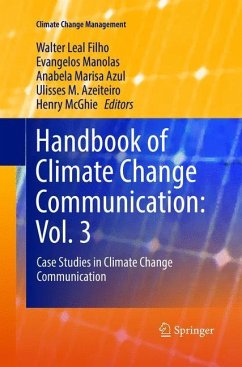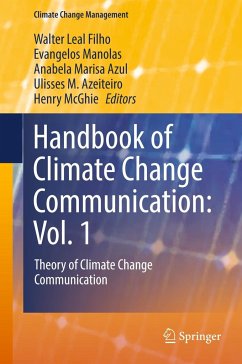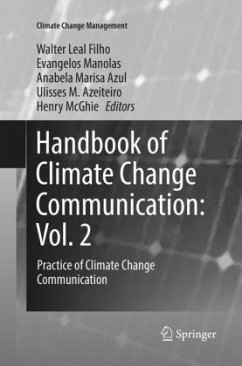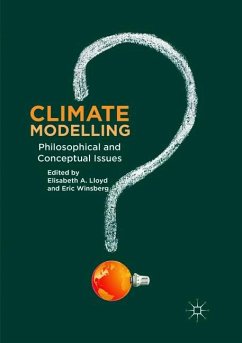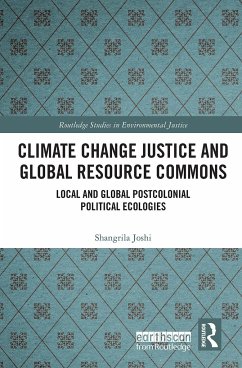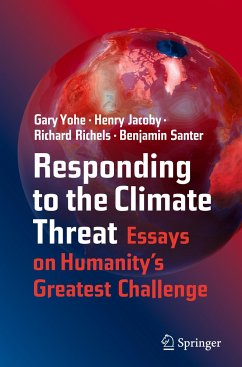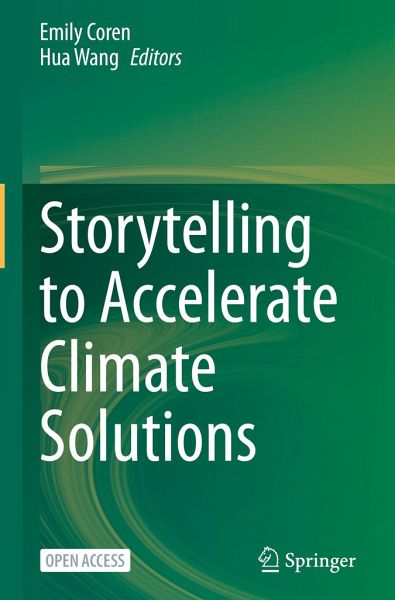
Storytelling to Accelerate Climate Solutions
Versandkostenfrei!
Versandfertig in 6-10 Tagen
38,99 €
inkl. MwSt.

PAYBACK Punkte
19 °P sammeln!
The climate is changing faster than our cultural practices are adapting to it. This Open Access volume, co-edited by Emily Coren (a science communicator) and Hua Wang (a communication scientist), presents a survey of the latest in agency-focused climate storytelling. Together, practitioners and scholars across different fields shared their knowledge, experience, and insight about how stories can be designed and told to engage, enable, and empower individuals and communities in climate communication and action. You will learn a wide range of narrative strategies and exemplary applications of cl...
The climate is changing faster than our cultural practices are adapting to it. This Open Access volume, co-edited by Emily Coren (a science communicator) and Hua Wang (a communication scientist), presents a survey of the latest in agency-focused climate storytelling. Together, practitioners and scholars across different fields shared their knowledge, experience, and insight about how stories can be designed and told to engage, enable, and empower individuals and communities in climate communication and action. You will learn a wide range of narrative strategies and exemplary applications of climate storytelling in terms of professional practices (e.g., education, literature, journalism, popular media), genres and formats (e.g., drama, comedy, fiction), media platforms (e.g., television, radio, mobile), and communication modalities (e.g., text, visual, audio, multisensory).
Entertainment-education has been proven over decades to be an effective tool for social and behaviorchange in the public health sphere and has not yet been applied at scale to the massive ongoing climate-related disasters that we need to solve now, fast. There is an urgent need to rapidly apply and adapt public engagement tools for climate communication to speed up our response times for climate change mitigation and adaptation. This book takes a snapshot of where climate storytelling is currently at, describes where it fits within a climate communication landscape, and supports the next steps of its development. It facilitates the of creation climate storytelling efficiently by sharing and amplifying what is working well, and building collaborations between practitioners and researchers.
This is an open access book.
Entertainment-education has been proven over decades to be an effective tool for social and behaviorchange in the public health sphere and has not yet been applied at scale to the massive ongoing climate-related disasters that we need to solve now, fast. There is an urgent need to rapidly apply and adapt public engagement tools for climate communication to speed up our response times for climate change mitigation and adaptation. This book takes a snapshot of where climate storytelling is currently at, describes where it fits within a climate communication landscape, and supports the next steps of its development. It facilitates the of creation climate storytelling efficiently by sharing and amplifying what is working well, and building collaborations between practitioners and researchers.
This is an open access book.




